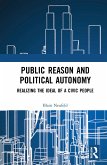The advance of ICTs in the human services has generated
many concerns, including a proposition that professional autonomy
is necessarily compromised. Database systems, and the associated
managerialist scrutiny, enable a dehumanising intrusion into the
worker/client relations that constitute social casework. ICTs and
Professional Autonomy responds to this concern by tracing the
historically developed shift from the rituals of self-reflection
attached to process recording through to the risk management
calculations associated with desktop recording. Dearman s
conclusion, based on a post-structuralist analytics of power and
knowledge, is that autonomy is not simply a matter of principled
freedom from managerial power but rather a disposition to act,
which in turn is an outcome of different forms of engagement with
changing techniques of representation. As recording practices have
shifted, from a profound reliance on process and self-reflection to
an abbreviated keying of relevant information , so too has the
nature of real relations between professional labour and
management, and so too has the capacity of professional social
workers for self-mastery .
many concerns, including a proposition that professional autonomy
is necessarily compromised. Database systems, and the associated
managerialist scrutiny, enable a dehumanising intrusion into the
worker/client relations that constitute social casework. ICTs and
Professional Autonomy responds to this concern by tracing the
historically developed shift from the rituals of self-reflection
attached to process recording through to the risk management
calculations associated with desktop recording. Dearman s
conclusion, based on a post-structuralist analytics of power and
knowledge, is that autonomy is not simply a matter of principled
freedom from managerial power but rather a disposition to act,
which in turn is an outcome of different forms of engagement with
changing techniques of representation. As recording practices have
shifted, from a profound reliance on process and self-reflection to
an abbreviated keying of relevant information , so too has the
nature of real relations between professional labour and
management, and so too has the capacity of professional social
workers for self-mastery .








